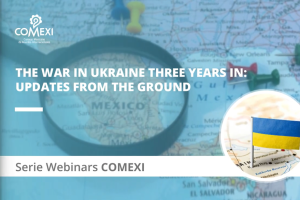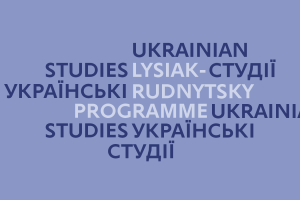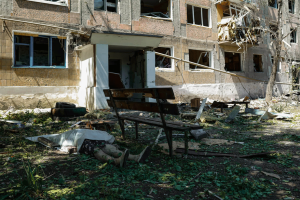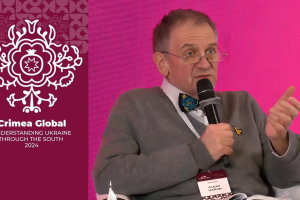Only 3 per cent of Ukrainians say that situation in the country improved – survey

Situation in the east, economic situation and corruption – are among the top topics the society is concerned about, there is not a single politician with positive balance of trust, the most trusted institution this year, just like before are the volunteers.
According to public opinion poll, the only sector where the situation improved is defense. In the rest of the sectors it has worsened, including international image of the country – for the first time after the Revolution of Dignity, as the figures were very positive in 2015. Economy, tariffs, prices and living standards received the worst ratings. Only three percent believe that situation in the country had improved. These results of a survey were presented by Andriy Bychenko, director of the sociological service of the Razumkov Center at a discussion at Ukraine Crisis Media Center. “Most of all people are concerned by situation in the east, economic situation and corruption.

We asked the same questions in our previous survey, and perhaps such level of dissatisfaction emerged as solutions to these problems take a lot of time, this is a difficult process and all this doesn’t meet expectations of the people,” said Iryna Bekeshkina, Director of Ilko Kucheriv Democratic initiatives Foundation, senior researcher at the Institute of Sociology of the National Academy of Sciences of Ukraine.

Level of trust is critically low
According to Iryna Bekeshkina, none of politicians has positive balance of trust. Situation is slightly better for Iryna Geraschenko and Oksana Syroid. Valeria Gontareva has the worst scores. Among the state institutions there is more trust to those related to army and the Patrol Police. “Traditionally, the leader in this list is not the Church but volunteers,” Ms. Bekeshkina added. The leader of anti-rating are Russian media, followed by the machinery of government, courts, banks, the Parliament, Prosecutor’s Office, political parties. Ratings are slightly better for the Government, President and Police. “Comparing to these, rating of mistrust to local authorities are significantly lower, this is 11 percent. In some aspects the attitude to them is positive, in some other it isn’t. This is result of decentralization, because in a number of regions it has led to some changes for better,” Iryna Bekeshkina explained.
International level
According to social survey, Ukrainians are interested in international events even more than in internal situation. “Presidential elections in the US were named the top-event,” Mr. Bychenko said. According to Oleksandr Sushko, research director of the Institute for Euro-Atlantic Cooperation, the world changes very quickly and becomes more unpredictable.

“The only conclusion for us is that Ukraine needs to rely on its own and try to find new partners there, where the situation is not obvious, to look for solutions and communication channels. Trump is very pragmatic. If Ukraine will become a ‘success story’, he will be more interested in supporting us. What they are afraid of is the alliance with the losers,” Mr. Sushko stressed.
According to Volodymyr Fesenko, head of the Center for Applied Political Studies “Penta”, this rotation of elites in the countries of Ukraine’s international partners will result in slowdown of negotiations on the conflict in Donbas.

“Putin will wait and try to gain from these changes, he will try to restore dialogue with the western leaders all the aforementioned factors might result in stagnation. However, improvement of defense capability and strong Ukrainian diplomacy would help to retain ‘status quo’ and to avoid fundamental concessions,” he said.
Oleksandr Sushko forecasts that Ukrainians will become more eurosceptical. “Pro-Russian movements became fringe groups, now the main dividing line is between those who see Ukraine’s perspectives in European integration and those who doesn’t believe in such perspectives and are rather isolationists,” he explained. According to the survey, visa-free regime is important for 44 percent of Ukrainians and not important for 50 percent.
Economic forecast
In 2016, Ukraine managed to achieve macroeconomic stability, neutralize inflation and to restore economic growth for the first time in four years, said Glib Vyshlinskyi, executive director of the Center for Economic Strategy.

The IMF program has been continued and the 2017 state budget deficit is smaller than in 2016. “In 2017, it is necessary to continue the IMF program. Two important issues – the budget and nationalization of PrivatBank are now fixed. Next in line are reform of pension system and cancellation of moratorium on sale of agricultural land. After that, we need personnel purges in the State Fiscal Service, privatization and independent corporate management in public enterprises, liberalization of foreign exchange market and of capital flow,” said Mr. Vyshlinskyi.








